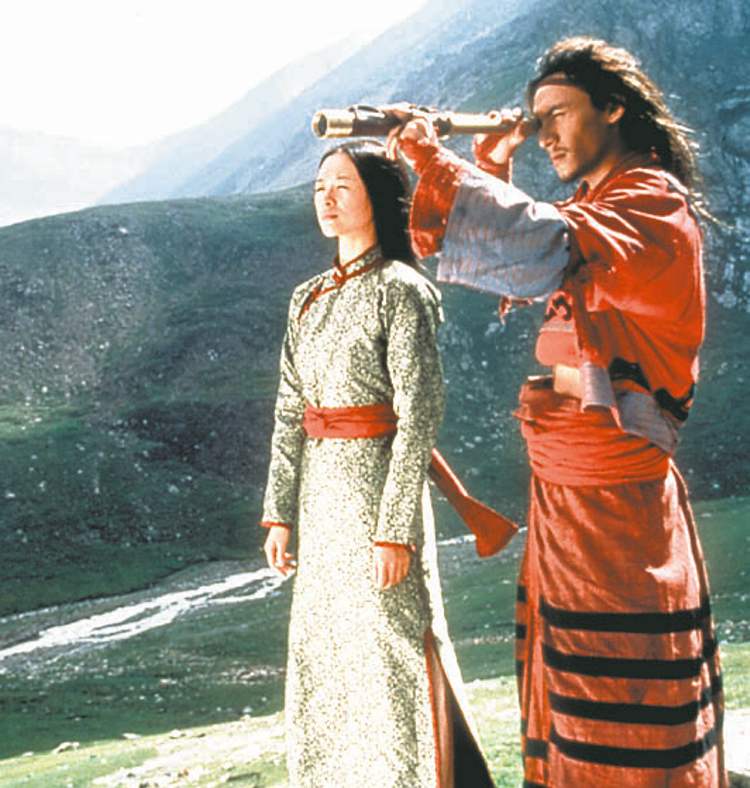Top 10 books by Chinese authors
Advertisement
Read this article for free:
or
Already have an account? Log in here »
To continue reading, please subscribe:
Monthly Digital Subscription
$0 for the first 4 weeks*
- Enjoy unlimited reading on winnipegfreepress.com
- Read the E-Edition, our digital replica newspaper
- Access News Break, our award-winning app
- Play interactive puzzles
*No charge for 4 weeks then price increases to the regular rate of $19.00 plus GST every four weeks. Offer available to new and qualified returning subscribers only. Cancel any time.
Monthly Digital Subscription
$4.75/week*
- Enjoy unlimited reading on winnipegfreepress.com
- Read the E-Edition, our digital replica newspaper
- Access News Break, our award-winning app
- Play interactive puzzles
*Billed as $19 plus GST every four weeks. Cancel any time.
To continue reading, please subscribe:
Add Free Press access to your Brandon Sun subscription for only an additional
$1 for the first 4 weeks*
*Your next subscription payment will increase by $1.00 and you will be charged $16.99 plus GST for four weeks. After four weeks, your payment will increase to $23.99 plus GST every four weeks.
Read unlimited articles for free today:
or
Already have an account? Log in here »
Hey there, time traveller!
This article was published 28/07/2012 (4846 days ago), so information in it may no longer be current.
Top 10 books
by Chinese authors
1. Cao Xueqin. Dream of the Red Chamber. Written in the mid-18th century, this is one of China’s four great classical novels. It is believed to be semi-biographical and is a sweeping tale of the rise and decay of an elite family and the Qing dynasty.

2. Lu Xun. The Real Story of Ah Q and Other Tales of China. The Complete Fiction of Lu Xun. Translated by Julia Lovell. (Penguin Classics, 2010). Considered the father of modern Chinese fiction, Lu Xun was a powerful voice for social change whose unflinching criticism of inhumanity in China’s past has been central to modern Chinese nationalism.
3. Eileen Chang (Zhang Ailing), translated by Karen Kingsbury. Love in a Fallen City (New York Review of Books Classics, 2006). This is a collection of four novellas and two short stories originally published to critical acclaim in Hong Kong and China in the 1940s. Chang’s stories explore the social and psychological limits of love, sexuality and family at a time of great upheaval.
4. Ding Ling. I Myself am Woman: Selected Writings of Ding Ling. Editor, Tani Barlow (Beacon Press, 1990). This collection features the works of one of the most prominent female writers in 20th-century China. Ding Ling’s writings focus on unconventional women, questions of sexuality and women’s place in land reform and socialist revolution.
5. Wang Shuo, Please Don’t Call Me Human (Cheng and Tsui, 2003). Wang Shuo is considered the leader of “hooligan literature” that gained popularity in the 1980s. Originally published in serialized form in 1989 in a Nanjing literary journal, this novel is an irreverent political farce that engages debates about Chinese ‘national character’ by mocking political culture, Chinese history and sporting competition as means to determine national value.
6. Dai Sijie. Balzac and the Little Chinese Seamstress, translated by Ina Rilke. (Anchor, 2002). A beautifully simple story that foregrounds the power of storytelling, imagination and friendship in China’s Cultural Revolution.
7. Gao Xingjian. Soul Mountain, translated by Mabel Lee. (Harper Perennial, 2001). Gao Xingjian is the first writer in Chinese to be awarded the Nobel Prize for literature. In this novel, Gao (now a French citizen) experiments with narrative voice as the book maps a spiritual, emotional and physical journey through China.
8. Mian Mian. Candy (Back Bay Books, 2003). Mian Mian is a leading writer among China’s Generation X and Generation Y. This “rock-and-roll drug-addict story” was banned in China upon publication for its focus on drugs and sex in new China’s urban youth culture.
9. Yu Hua. Chronicle of a Blood Merchant, translated by Andrew Jones. (Anchor, 2004). This is the emotionally intense and raw story of Xu Sangguan, a man who sells his blood to deal with the costs of everyday crises, while he also confronts his obligations to blood relations and to a son fathered by another man.
10. Jiang Rong, Wolf Totem translated by Howard Goldblatt. (Penguin Books, 2009). Winner of the Man Asian Literary Prize and one of China’s recent bestsellers, Wolf Totem is a semi-autobiographical story of a Han intellectual’s experiences on the Mongolian steppes. Internationally, it has been both richly praised and deeply criticized for its portrayal of Han-minority relations, human-animal relations and ecological issues in modern China.

